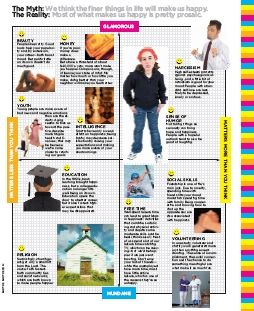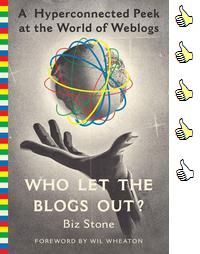You. I. Me. Crazy?
"Often when you come across 'you' in texts, you'll suspect that that 'you' is a hidden 'I' in a concealed autobiographical story..." - Jill Walker
 You. A word reflecting American individuality. Overused? Perhaps. Trite? Nah. In an individualistic society filled with many distractions, the stylish use of you allows for a more personalized experience when reading texts. In Jill Walker's "Do You Think You're Part of This? Digital Texts and the Second Person Address", she analyzes the various usages of the word you.
You. A word reflecting American individuality. Overused? Perhaps. Trite? Nah. In an individualistic society filled with many distractions, the stylish use of you allows for a more personalized experience when reading texts. In Jill Walker's "Do You Think You're Part of This? Digital Texts and the Second Person Address", she analyzes the various usages of the word you.When straying away from the usage of you, there will be an implication that a you will be present. Walker gives the example of the video game Deus Ex where the human being controls the protagonist in a fantasy world. Although the narrator does not use the word you, he/she is still addressing the human being controlling the character -- you.
The strength of writing will be weaker without the usage of you, whether it is the direct usage or an implied reader via narrator. The alternative usage of the first-person "I" are not welcome as it alienates the reader; the "I" would be referring to the author and only the author, unless noted otherwise. In our digitized world, two-way communication is becoming extremely dominant, with your feedback as the reader being expected.





 And I actually joined MySpace because I wanted to network with my Staples co-workers. I had no intention of networking with other non-Staples people. That quickly failed as those who knew me from college, high school, etc. added me to their own social network; thus piecing together this "puzzle board."
And I actually joined MySpace because I wanted to network with my Staples co-workers. I had no intention of networking with other non-Staples people. That quickly failed as those who knew me from college, high school, etc. added me to their own social network; thus piecing together this "puzzle board."




